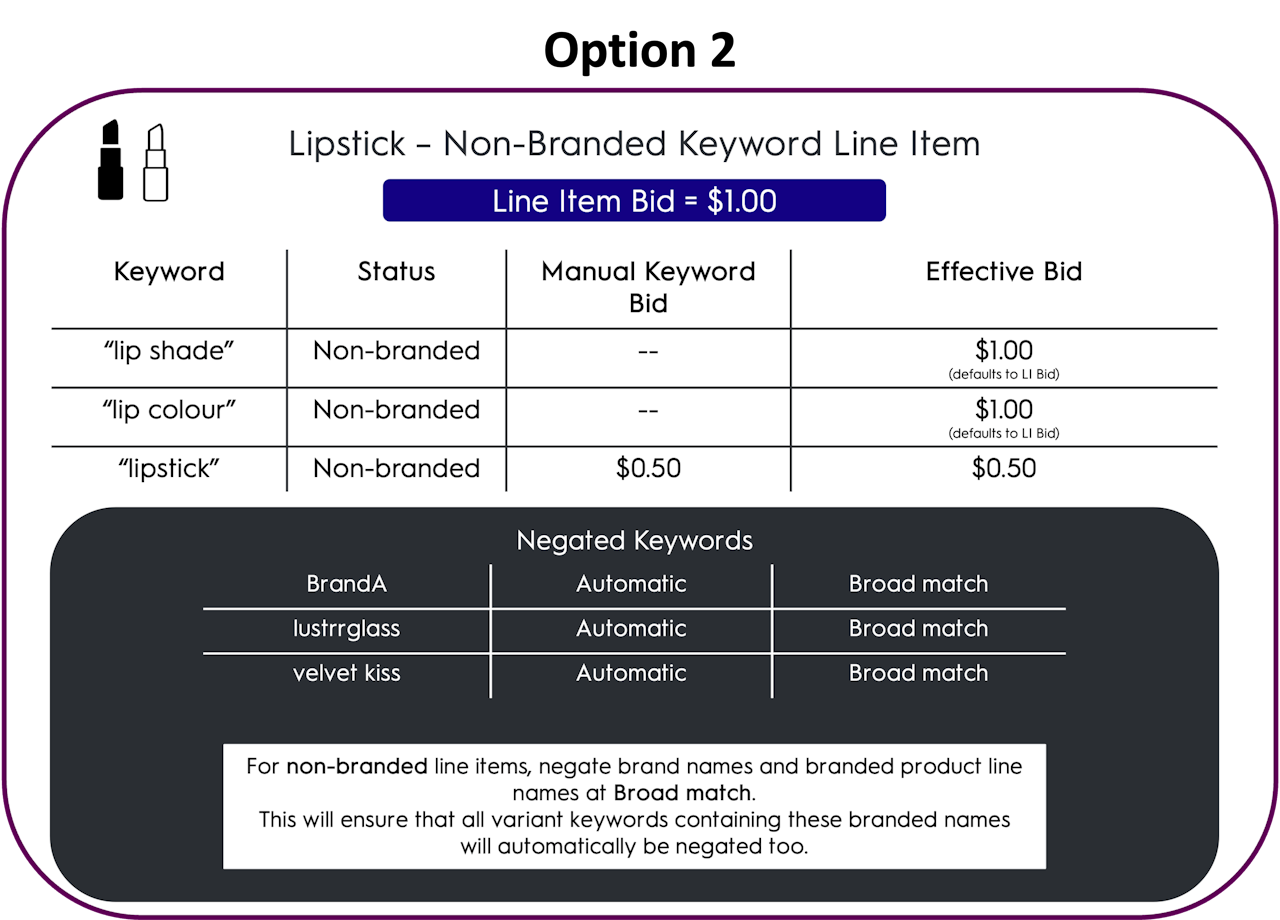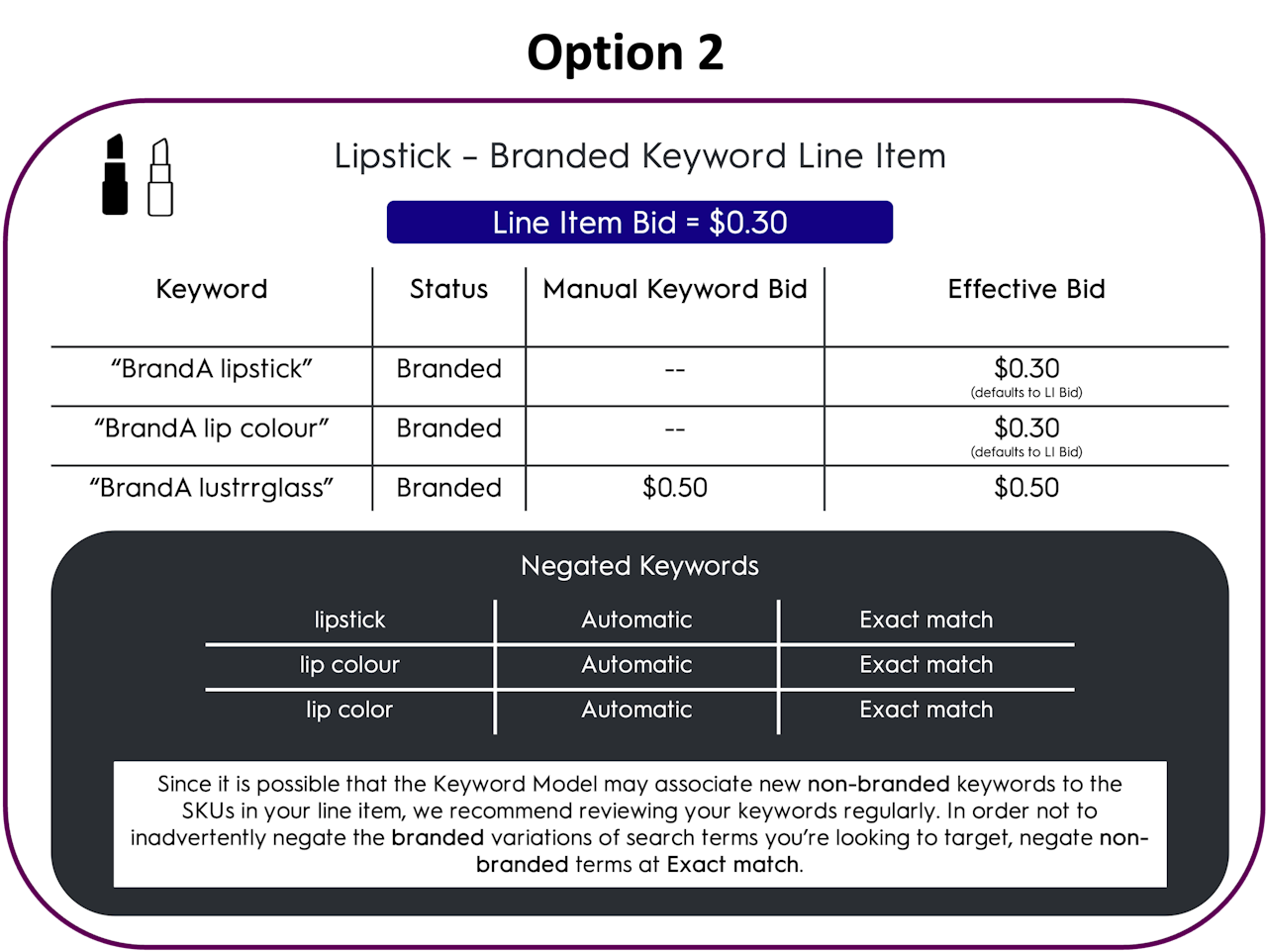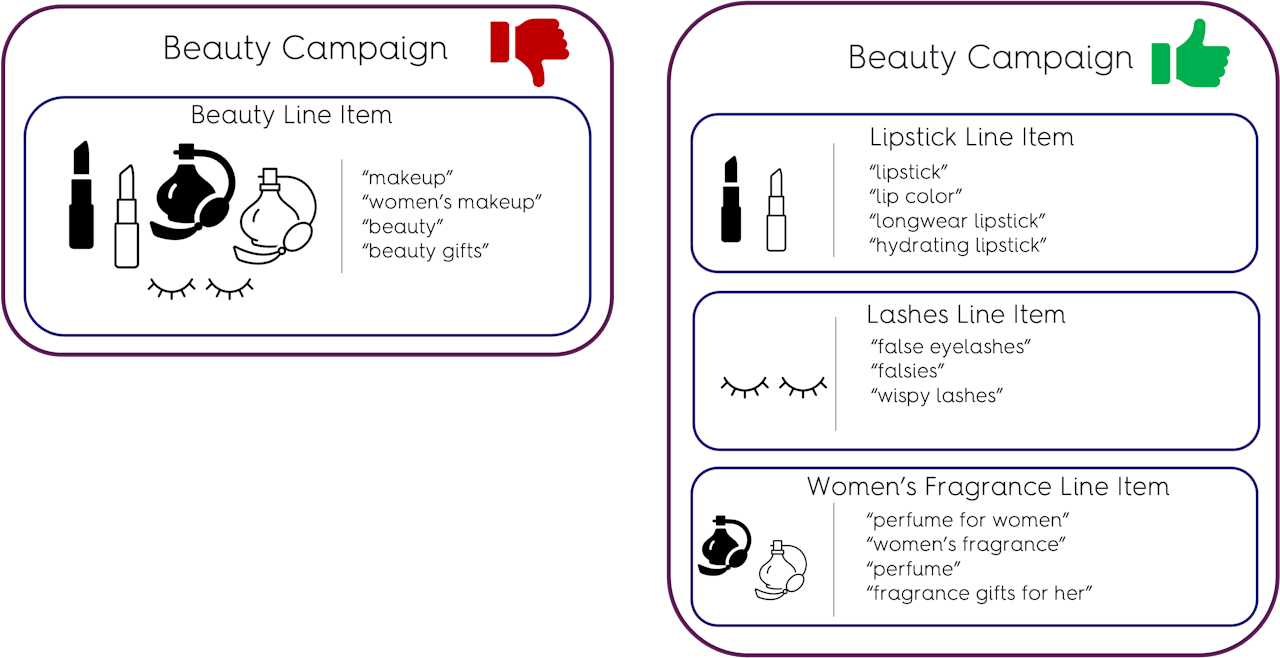
Mapping Keywords
Keyword addition, negation, and bidding are available at the line item level. We recommend having similar products in the same line item so that all manually submitted keywords are indeed relevant to all products.
If intending to only use the automated Keyword Model and you do not plan to submit manual keywords or use keyword bidding, we recommend consolidating the SKUs into fewer line items to help with scale.
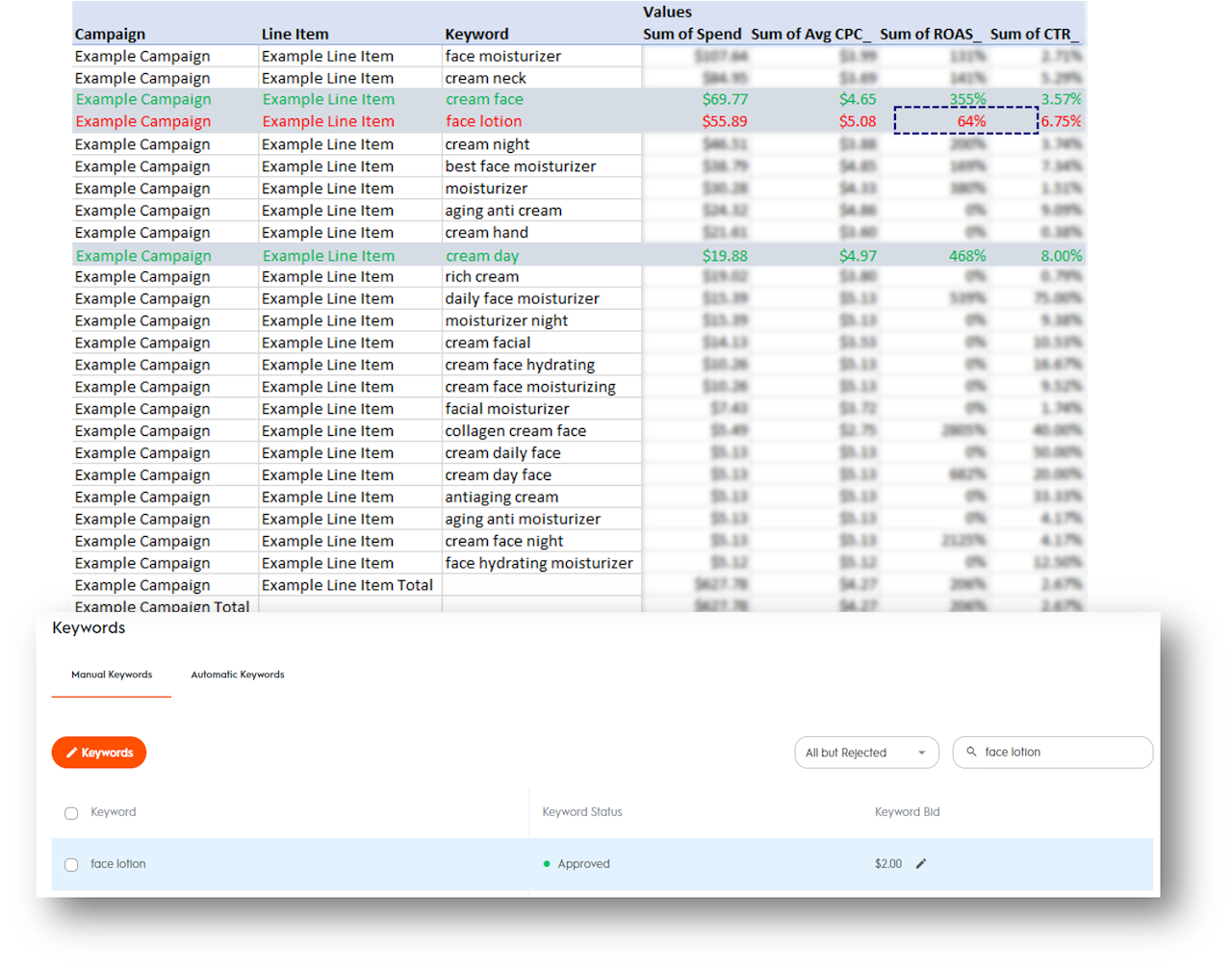
Identifying Terms to Bid On
When Keyword Bids are implemented, we recommend reviewing and optimizing the line item’s keyword performance weekly.
To understand which keywords are having the greatest impact on overall performance, we recommend sorting the keywords by spend (highest to lowest).
Adjust the bid for keywords that are performing with higher or lower efficiency than the campaign benchmark.
When to use Keyword Bidding
Criteo’s automated bid optimization models (Revenue, Conversions, or Clicks) are powered by machine learning and allow the input CPC to be modulated slightly during auction to increase the likelihood of a click or a sale.
While use of the automated optimization models is key to achieving performance at scale, Keyword Bidding generally gives more control to refine bidding strategies to meet individualized business objectives that could vary slightly from chosen optimization model’s explicit design and goals.
Here are some examples of use cases where it is recommended to use Keyword Bidding in tandem with the desired selected optimization model:
Implementing a non-branded versus branded keyword strategy
Growing share of voice on a specific search term that is of high strategic value to your brand
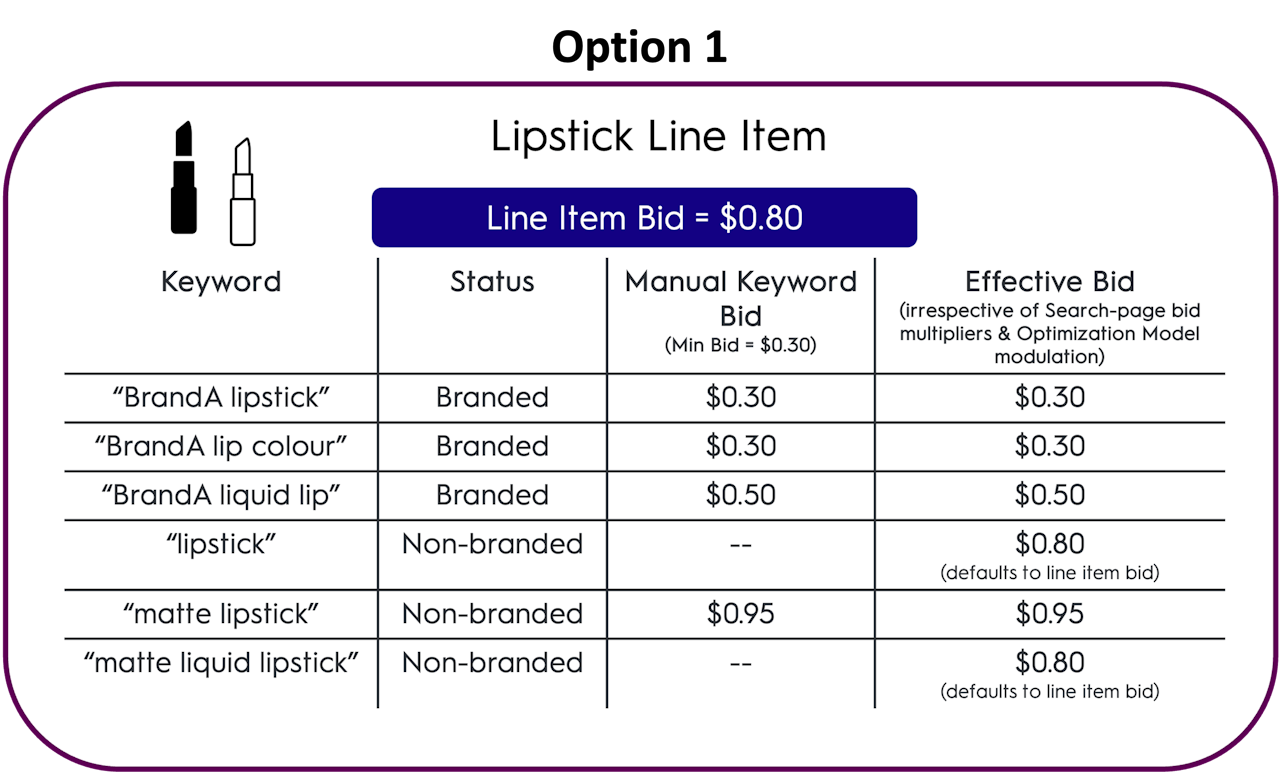
Branded vs. Non-Branded Keywords
With Keyword Bidding, brands and advertisers have the flexibility to bid higher or lower for non-branded versus branded search terms.
Why should brands bid on their own branded terms?
Bidding on branded terms gives brands control over what shows up first to shoppers searching for their brand.
Sponsored Products ads on branded terms can be used to boost hero products that are not highly ranked organically or new products that brands want their existing brand loyalists to discover.
Shoppers searching actively for the brand show intent to make a purchase, so brands may prefer to pay less for their own branded terms. With Keyword Bidding, set lower bids on these terms while controlling which of the products populate first for these searches.
There are multiple ways to implement this strategy:
Option 1: Create 1 line item.
Option 2: Create 2 line items: 1 for branded and 1 for non-branded.
We recommend choosing setup based on reporting requirements and whether you will frequently need to adjust bids holistically for all branded keywords or all non-branded keywords at once. If this is the case, option 2 may be preferred.
[See example setup options above]
Focusing on Specific Terms
Use Keyword Bidding to increase the presence and visibility of the brand on a specific search term.
Perhaps the brand is a leader in a certain product category and appearing first in search results for the top related keyword (usually a generic non-branded search term – e.g. “laundry detergent”) is a key strategic priority. Here, implement a higher bid on this search term, without impacting bids on other terms that may be less critical to dominate.
In addition, Keyword Bidding offers the flexibility to adjust bids accordingly on select search terms without sacrificing automation coming from line item’s selected optimization model.

